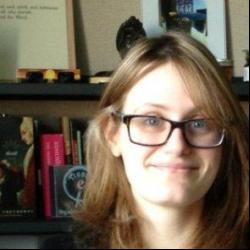- About Archives
- About SAA
- Careers
- Education
- Publications
- Advocacy
- Membership
The Encoded Archival Standards Section has two upcoming open positions for the 2018 election: Junior Co-Chair and Steering Committee Member. We have received one nomination for each position, and their details are below.
Our candidate for Junior Co-Chair is Dallas Pillen (University of Michigan Bentley Historical Library).

Dallas Pillen is the Archivist for Metadata and Digital Projects at the Bentley Historical Library and an Adjunct Lecturer at the University of Michigan School of Information. At the Bentley, he has worked extensively on the library's implementation of ArchivesSpace, including migrating legacy EAD, MARC XML, and accessions records, establishing new descriptive guidelines and workflows, training staff, and developing local ArchivesSpace plugins, including plugins to assist with the import and export of EAD. Dallas also oversees the Bentley's web archiving initiatives, including its use of Archive-It and various social media capture tools, and assists with a wide range of projects involving the use and reuse of structured metadata. At the University of Michigan School of Information, he has taught the Access Systems for Archival Materials course, instructing students in the fundamentals of archival description and the encoding of metadata in EAD, EAC-CPF, and related encoding standards. Dallas is a graduate of Wayne State University's School of Library and Information Science and previously worked for the Walter P. Reuther Library of Labor and Urban Affairs, the Detroit Historical Society, and the Detroit Jewish News Foundation.
I have worked with structured archival description throughout my career, including extensively updating, refining, and preparing the Bentley Historical Library's legacy EADs for migration to ArchivesSpace and working to ensure that the Bentley's descriptive and encoding practices meet the library's evolving needs for internal and external discoverability, metadata reuse, and systems interoperability. I have gained a great appreciation for the affordances of thoughtfully developed and implemented archival encoding standards and for the importance of groups such as the Encoded Archival Standards Section in providing resources to and sharing knowledge with the wider archival community. With the emergence and wider adoption of new and updated standards and tools, the next several years will be an exciting and vital time for the section and, as a EAS co-chair, I would strive to ensure that the EAS Section is performing the necessary outreach to its community in order to provide accessible, up-to-date, and relevant educational materials, tools, and other resources to facilitate the implementation, transformation, and dissemination of encoded archival standards.
Our candidate for Steering Committee Member is Caitlin Rizzo (Eberly Family Special Collection Library at Pennsylvania State University).

Caitlin Rizzo is the Head of Collections Management at Eberly Family Special Collection Library at Penn State University beginning June 2018. Over the past three years, Caitlin has worked with organizations like the Folger Shakespeare Library and the University of Maryland Special Collections and University Archives to assist in the creation of EAD-compliant finding aids, customized digital asset management recommendations, and standard-compliant encoding and metadata for various projects. Caitlin holds two degrees from the University of Maryland, College Park including a Masters in Library and Information Science and a Masters of Literature.
Though I'm still fairly new to the profession, the past three years spent in special collections as a graduate student impressed upon me the importance of standards and metadata to the systems that make archives and special collections not just work but thrive. From working with University of Maryland's ArchivesSpace migration to attending weekly meetings of Folger Shakespeare Library's Digital Asset Management team, I return often to questions about how to build systems and communities that sync. Generally, I'm interested in how we can use systems and standardized metadata/schemas to ease the heavy workloads placed on our professionals and to make life easier for both us and our users. Standardized, interoperable systems and data seem one of the most elegant solutions to a complex problem. As a steering committee member, I hope to support work to build a more approachable community surrounding standards and to ultimately encourage wide-participation and the demystification of standards work across the profession.